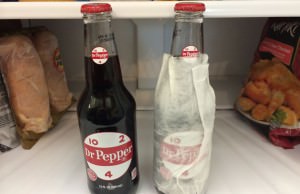Is It Time To Rethink Our Calories?

When we are thinking of dieting and shedding excess weight, calories are still the king. Even the FDA puts it simply as – you need to spend more calories than you put in your body in order to lose weight. And while some truths about calories still stand and provide a general framework for dieting, so much has been discovered over the years that we might seriously need to reconsider how we see, understand and count calories.
For one, there is still no strict rule for food manufacturers displaying the caloric contents of their products. Some of them use inventions that date back to 18th and 19th centuries (which are still surprisingly precise, because, you know, science) while others use other methods approved by the FDA which can give varying results. In essence, you can never be absolutely, one hundred percent sure that a certain food item has exactly as many calories as its label says. And this is only the start.
Namely, there are also variations to how our bodies extract calories from different foods. For example, various nuts, when unskinned, actually provide our bodies with fewer calories than they actually contain, independently of our digestive tracts. Namely, some of the calories are contained in the skins which our guts cannot break down and absorb, meaning that they get expelled from our bodies. There are other examples of this.
Furthermore, for some very strange and impossible to understand reason, cooking has not yet been properly factored in calorie counting. The reason why we think this is impossible to understand is that it has been a scientific fact for quite some time that different ways of cooking the food can increase the caloric count. For example, the same steak will provide different amounts of calories depending on whether it is prepared bloody or well-done. Things get even more impactful with industrial food processing which often involves extremely high temperatures and pressures.
 Another factor that will determine how many calories we get from the food we eat is the microbiota we all have in our intestines, i.e. the collection of microorganisms which aid in digestion. The microbiotas we feature in our intestines are as unique from person to person as our fingerprints and they can have an immense effect on how much calories we extract from which foods.
Another factor that will determine how many calories we get from the food we eat is the microbiota we all have in our intestines, i.e. the collection of microorganisms which aid in digestion. The microbiotas we feature in our intestines are as unique from person to person as our fingerprints and they can have an immense effect on how much calories we extract from which foods.
A case that probably paints the most straight-forward picture of this was the one of a woman who received a microbiota transplant from her daughter in order to clear out an infection that was drug-resistant. The therapy worked, but as a result, the woman later gained more than 40 pounds without changing anything about the way she lived or ate. It had to do with the microbiota she received from her daughter who struggled with excess weight her entire life.
Last but definitely not the least, there is also the issue of different people requiring different amounts of calories. For example, a tiny person weighing 90 pounds will not need as many calories as someone who is 7 feet tall and weighs 250 pounds. This is pure common sense.
Once you add all this up, the margin of error becomes far more dramatic than you would think and one’s calorie counting efforts can end up somewhere in the 200 plus-minus range, which can ruin anyone’s weight loss efforts.









